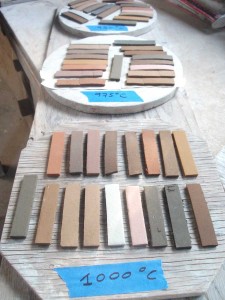Diyala Journal for Pure Science
Enas Muhi Hadi* and Safa Luay Jasim
Applied Sciences Department – University of Technology – Baghdad – Iraq 2020
Volume: 17, Issue: 1, January 2021
Manuscript Code: 532B
P-ISSN: 2222-8373
E-ISSN: 2518-9255
Abstract
Filtration is the process of removing suspended objects from the fluid by passing it through a porous filter. In this study porous ceramic water filter was preparation from Iraqi local porcelanite and Iraqi white kaolin with ratio (10%) as a binding material, and natural additives )wheat flakes( with ratio (5,10,15,20,25, and 30) %. Ceramic materials used in the manufacture
of the filter are environment – friendly materials and harmless. Filter is not expensive and easy to prepare, the specimens were formed by dry pressing then fired at (1200) ËšC, to evaluation of prepared filters the following tests were performed, linear shrinkage, loos in mass, apparent porosity, water absorption, apparent density, permeability as physical properties, compressive strength and diametrical strength as mechanical properties. The result shows that the linear shrinkage decreased to 0.6 %, loos in mass increased to 24.25 %, apparent porosity increased to 55%, water absorption increased to 50.99%, apparent density decreased to 1.07(g/cm3), permeability increased to 0.131(cm2/ bar. min), compressive strength decreased to 1 (MPa) and diametrical strength decreased to 3 (MPa) with adding ratio (30%) of wheat flakes (W.F), scanning electron microscopy (SEM) using to studying the microstructures which showed homogenies distribution of pores form a net in filter, adding wheat flakes with (30) % give highest pores.

